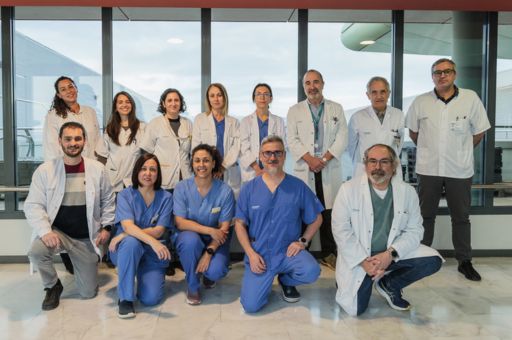The i-Respire research group explores the efficacy of biological therapies, a further step in personalised medicine
The i-Respire group (Inflammation, repair and cancer in respiratory diseases, repair and cancer in respiratory diseases) of the Balearic Islands Health Research Institute (IdISBa), which forms part of the Son Espases Pneumology Service and is directed by Dr. Borja García-Cosío, is part of the European study called 3TR-ABC which investigates how to improve the efficacy of biological treatment in patients with severe asthma.
It is estimated that asthma affects 5% of the population, and 4% of these cases can be considered severe. Until now, the only therapeutic option for these patients with a pathology that is very disabling due to its frequent crises of respiratory failure, wheezing, coughing, etc., could only be treated with corticosteroid drugs despite their numerous side effects, but now new, more innovative treatment options are opening up in the form of biological therapies.
TDB keeps you informed. Follow us on: Facebook, Twitter and Instagram
Pneumononology at Son Espases participates in a European study to identify a treatment to treat severe asthma
‘It is a broad and ambitious project that aims to characterise inflammation in severe asthma,’ explains Dr García-Cosío. ‘The new biological treatments are directed against very specific targets, we are now talking about personalised medicine,’ he adds. The 3tr-ABC study, which is part of the European IMI 3tr research consortium, aims to add new insights into the mechanisms of asthma. The project is designed as a multi-branch study platform that follows the same protocol, objectives, inclusion and exclusion criteria, and collection of data and biological material.
Among all groups, the aim is to identify which patients with severe asthma respond best to current biological treatments already in use and to identify markers that can better predict a complete response to treatment. In addition, we will study whether there are new mechanisms within the immune system related to severe asthma. If these are identified, more specific and effective future treatments could be developed that, while not curing a chronic disease, can bring it into remission.
The research will include a clinical and biological evaluation of the patients participating at 4, 16 and 52 weeks and at 2 and 3 years, and they will be stratified into groups according to their response to treatment. This study is currently in the recruitment phase at Son Espases. It is the only Spanish group participating and is one of the most advanced, along with Denmark and the United Kingdom.
